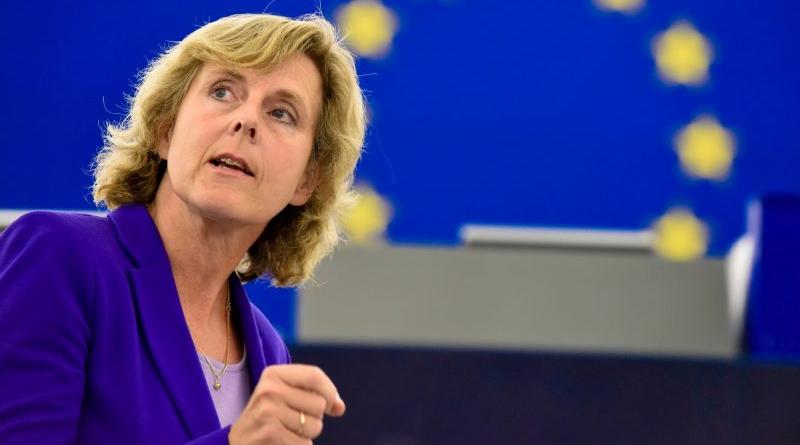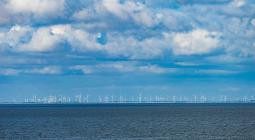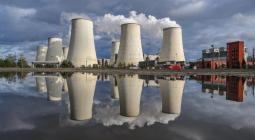Increasing Europe’s R&I budget is critical to grow the economy and fight climate change

Without an increased investment in research and innovation, the European Union will be unable to reach net-zero carbon emissions by 2050, and will lose out to economic rivals on the competitive advantage this could present, writes Connie Hedegaard.
According to a survey of EU voters in the last election commissioned by the European Parliament, the top two issues across the bloc were economic growth and combating climate change.
Yet without an increased investment in research and innovation the European Union will be unable to reach net-zero carbon emissions by 2050, and we will lose out to our economic rivals on the competitive advantage this could present.
Even if we deploy all the solutions currently available to us – from more renewable energy resources like wind, solar and geothermal, to efficient mobility, food production and adapting behavioural aspects – the EU simply won’t meet commitments made in the Paris Agreement.
Which is why the EU must increase Horizon Europe’s budget to €120 billion. It must also boost mission boards and lab-to-market programmes, take advantage of the potential in energy and resource efficiency, and place research and innovation at the heart of our transition to a cleaner, more prosperous society.
In the spring, the European Commission proposed a €100 billion Horizon Europe budget, with35% set aside for climate mitigation. This is not enough, which was confirmed by the European Parliament’s position.
Research shows we’ll only get three-quarters of the way to net-zero carbon emissions by 2050. This means the EU could squander major economic opportunities and fail to do its part in rising to meet the central environmental challenge of our time.
The UN Intergovernmental Panel on Climate Change has warned that we must limit global warming to less than 1.5 degrees Celsius above pre-industrial levels. Most EU countries, alongside hundreds of major corporations, have pledged to do their part by cutting net carbon emissions to zero by 2050. Equally this week the C40 World Mayors Summit will take place in Copenhagen bringing together leading cities, businesses and citizens to discuss climate solutions.
Yet despite the science and the growing public demand to tackle the climate crisis, our European leaders are not translating the cry for climate action into actionable steps forward.
We cannot afford to ignore this crucial blind spot in the EU agenda. One thing is clear: More investment in clean research and innovation must play a bigger part of the solution to climate change, stimulating economic growth.
With Ursula von der Leyen’s European Green Deal on the table, now is the time to secure Europe’s position as a global leader in tackling the climate crisis – and here’s why.
Time is running out. Choices we make today can set us up for success tomorrow.
For heavy industries responsible for 14% of EU carbon emissions, 2050 isn’t an abstract, distant date. To make a real difference for our climate it’s critical that we act now. We must ensure the EU’s best and brightest innovators have access to the resources they need to push low-carbon industrial technology to new heights.
We have an opportunity to position the EU as a global leader, boosting our economy and outpacing our economic rivals.
The EU trails in research and development expenditure as a percentage of GDP, spending just 2.03 percent on research and innovation.
Switzerland spends 3.37% of its GDP on research and development, while Japan spends 3.20% and the US 2.80% – significantly outmatching the EU. With figures like these, do we really believe that we are positioning ourselves well to maintain a competitive advantage in clean tech?
We know renewable energy spurs economic growth. As I’ve seen in my native Denmark, industries like offshore wind create good career opportunities in both cities and rural areas. According to the International Renewable Energy Agency, there are already about 1.2 million renewable energy jobs in Europe. With only one-fifth of the EU’s current energy supply coming from renewables, the jobs potential of deploying more cutting-edge renewable energy technologies or zero-emission vehicles is huge.
The public and civil society demand action.
In the week beginning Friday September 20th the world experienced what’s arguably the biggest climate mobilisation in history, as a reported 7.6 million people globally took time off work or school to take to the streets demanding climate action. And in a letter sent late last month from the Jacques Delors Institute to First Vice-President Timmermans and Commissioner Gabriel (Commissioner-elect for the Innovation and Youth portfolio), a group of think tanks, research institutes and corporate groups called for more funding for clean research and innovation to help address the climate challenge.
The question then remains. Will our European leaders seize the economic opportunity to ensure Horizon Europe has maximum impact in our fight against climate change?
*Connie Hedegaard was EU Commissioner for Climate Action from 2010-14. She serves on the board of the European Climate Foundation and in July was named chair of the EU mission board on Adaption to Climate Change including Societal Transformation.
Euractiv



